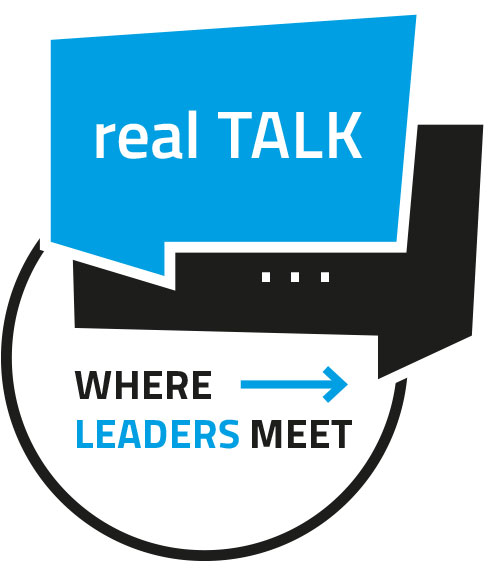How new ecosystems are merging physical & digital worlds
Nearly every market today is a connected environment, with tech-savvy consumers nimbly moving between physical locations and digital spaces. Along with more freedom and choice opportunities, this opens the door to new types of hybrid guest, consumer and office experiences. These experiences can be described as neither entirely physical nor entirely digital. Rather, ecosystems of technology, platforms, consumer insights, capabilities, tools and adapted strategies are emerging. Of course, there can be no shortage of a new and very appropriate term here. The concept of phygital. Let’s talk about it …
With the term “phygital”, a new term is conquering the business world. It is obvious that the digital age is showing up in all areas of life and it is hard to imagine business processes without it. Consumer activities such as travel bookings are being shifted online with smartphones or mobile apps, virtual worlds alternative technologies. Office space and workplaces are being booked flexibly in some places. Restaurants and hotels are increasingly digitizing their establishments. The term ‘phygital’ refers to the zeitgeist approach of using technology to connect the digital and physical worlds in the best possible way. The focus is on ensuring or optimizing interactivity between people and the digital world. Where it makes sense, interfaces disappear. Many experiences become virtual.
The phygital business strategy
Office worlds are adapting to the phygital trend, as are business models in retail or the hospitality industry. Michael Betz, CEO of the real Group, advocates clear differentiation and a focus on customer needs and real life worlds: “Where digitization, AI and VR optimize the customer journey, business models must flexibly follow suit.” Insofar as sensual and communicative aspects play a supporting role, the real Group continues to stand for maintaining and enabling interpersonal contact, according to Betz. The most important variables of phygital transformation are building infrastructure, technical equipment and internal as well as external communication. There is no one ‘right’ phygital strategy. For decision-makers in the business, however, there is a pivotal point: the customer or human experience, which is to be optimized further and further.
Phygital marketing & customer journey goes phygital
You could say that phygital transformation focuses on content marketing at all levels, in addition to infrastructural premises. Phygital positioning and phygital marketing, respectively, and thus customer experience bridge the conventional separation of physical and digital worlds. Smart phygital customer journeys combine interaction, availability and coherent embedding in an overall concept. Phygital design of business worlds means focusing on an optimal customer and shopping experience. According to Michael Betz, a system gastronomy has to proceed completely differently than a star restaurant. Bricklayers, electricians and plumbers are also digitizing. However, they have fundamentally different goals than medium-sized insurers, banks or administrations.
Any meaningful phygital design that can’t deliver a fast, hassle-free, immersive and interactive shopping experience will be unsuccessful in the long run. Immersive here stands for the subjective intensity of experiences. Immersive marketing aims to make the user forget about the real environment and lead them completely into a virtual experience.
In other words, it is about offering customers and clients a unique interactive experience in which both worlds merge, as it were. Customers, especially those of “Generation Z,” are essentially already phygital. They interact as a matter of course in both the physical and digital worlds simultaneously. The smartphone has now gone from being a means of communication to an identity-creating all-rounder. All that’s actually needed is for the devices to merge with the individuals in an interface-free manner. With Google Glass, fitness wristbands and wearables of all kinds, this is already a matter of course and everyday life for many people. For the hospitality industry, marketers and even retailers, it is therefore even more important to use the optimal space between the physical and digital worlds in each case and to meet and engage consumers at the interfaces. In this way, meaningful phygital experiences create real, perceived added value that can increasingly become a competitive advantage. As everywhere, it’s about the right measure and the customer-oriented optimal approach.
The phygital office
Digital booking solutions for highly flexible workplace management, management systems, smart applications for exchange, knowledge transfer and collegial interaction: the possibilities of phygital office worlds are vast. The phygital office also synergistically combines the digital and physical worlds in everyday office life. It is a matter of building, as it were, holistic office operating systems. Such end-to-end systems are capable of learning, monitoring processes and optimally scheduling resources. Workplaces are moving from being purely meeting places and administrative zones to becoming interactive locations. Employees can have personalized experiences, enjoy a new quality in comfort and processes or monitoring, coordination and options for continuous improvement. The vision of phygital transformation in the office context aims to offer employees and teams exactly what they need, when they need it. The focus here for companies is primarily on three impact dynamics:
- Transparency – monitoring, measurement & comparability
- Efficiency – maximum resource efficiency & CIP
- Modernity – stylization to an attractive employer brand
- Phygital Stores, phygital Retailer
As far as retailing from specialized retail stores to franchise stores is concerned, the term phygital retail business takes hold. Here, the customer experience plays a prominent role. Customer demands will increase more and more in the coming years with regard to digital interaction and virtual reality. Especially in retail, the focus must change here to experiential shopping. Customer expectations in terms of practicality and emotion will steadily surpass each other.
Intelligent self-service terminals will be at the center of shopping experiences. In the modern Kanban principle, these are kept constantly ready for use under AI control. Any human interaction will only be a useful addition where robo-advisors cannot yet provide specialized advice. The most successful branch ideology of the future will also reflect the optimal balancing act between digital potential and physical meaningfulness. This also coincides with studies on the purchasing behavior of Millenials.
Holistic operating systems will play an important role in the context of the phygital transformation. They are already capable of staging fully integrated phygital retail experience solutions. As a result, retailers are already creating nearly seamless and unified brand experiences at the nexus of physical and digital spaces. The new philosophy of customer engagement primarily involves five core areas:
- Merging worlds into a new phygital, dynamic reality.
- Consistent mobile access & VR as enhanced benefit concepts and customer experiences
- Personalization – appropriate promotions at the right time in the right place
- Top advisors where needed – human interaction as empathic fallback when customer is not optimally self-oriented
- Payment and optimized guidance systems: Benefits ranging from complete customer self-sufficiency to mobile payment and self-checkout
Anyone considering holistic operating systems as part of the phygital transformation of store worlds should primarily focus on modular approaches and maximum scalability. The bottlenecks in implementation currently lie in the so-called human factor, both on the customer and employee side. Modular, continuously expandable operating systems do justice to this circumstance.
Outlook: the phygital transformation
Phygital worlds are transforming marketing and communications in particular. Driven by the mobile revolution … Definitely, perspectives such as “click and collect”, “augmented and virtual reality”, the beacon at the POS and “in store reviews” are indispensable in a world that is becoming more and more digitalized. The management task of the future will be to achieve a successful balance between customer experience and journey, i.e., the question of what today’s customers are really looking for and need. And to find the corresponding technical infrastructures and solutions. We say: In no way do humans make themselves superfluous in the phygital world or even abolish themselves. They are merely required to constantly redefine their role on the way to an optimal customer experience.




